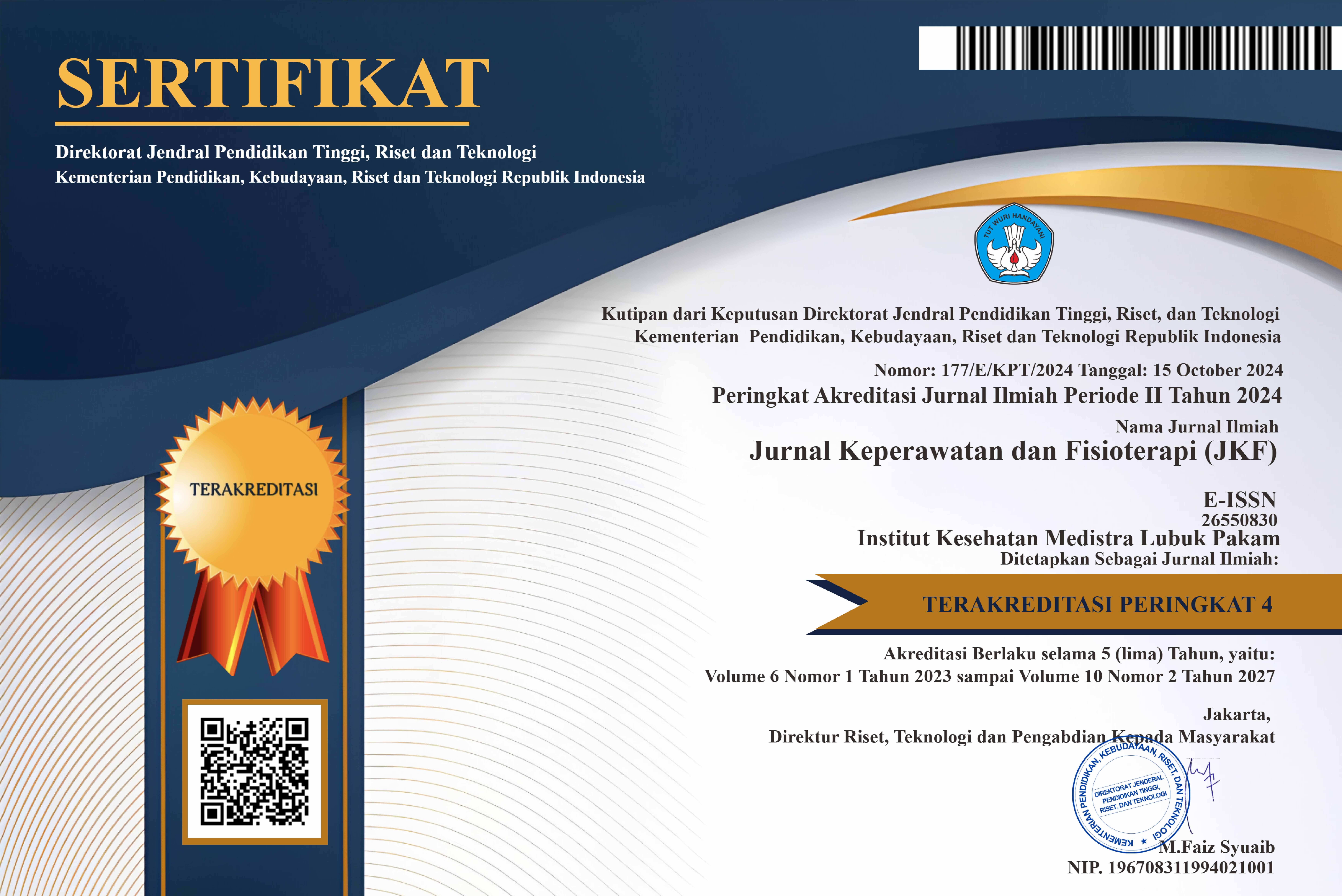INCENTIVE SPIROMETRY AND DEEP BREATHING EXERCISE PREFER TO PREVENT DECREASED OF LUNG VITAL CAPASITY AS GOOD AS DEEP BREATHING EXERCISE POST CORONARY ARTERY BYPASS GRAFT PHASE I
DOI:
https://doi.org/10.35451/jkf.v1i1.50Keywords:
Deep breathing exercises, incentive spirometry, lung vital capasityAbstract
Coronary artery bypass graft (CABG) is a procedure to remove the blood vessels from internal mammary artery, radial artery or vein saphenus and to the surface of the heart to create a bypass in coronary artery narrowing. Data taken from the patients with heart disease from medical department of rehabilitation H.Adam Malik Medan who undergoing coronary bypass graft surgery. From 73 patients with post-cardiac surgery who were referred to the Medical Rehabilitation, 49 people were post-CABG (in 2010), and 57 people in 2011. General anesthesia, diaphragmatic dysfunction, abdominal distension, changes in chest wall, surgical wound, pleural effusion, pain and dysfunction of the respiratory muscles, may lead to reduction in lung vital capasity of up to 55% post operative. Intervention were incentive spirometry and breathing exercise. The purposes of this study is knowing whether the intervention incentive spirometry and breathing exercise can more minimize the decline in lung capasity than breathing exercise intervention only on post-CABG in phase I. Experimental research with non-probability sampling two group pre test and post test design . Subjects of group I (n = 9) receive incentive spirometry (IS) and deep breathing exercises (DBE), while group II (n=9) receive only a deep breathing exercise. Data analysis with paired samples t-test suggested the mean value of vital capasity (VC) from group I (IS and DBE) was 73.78% (pre op) after 6 days postoperatively decreased to 59.56, average decline in 14.22, P = 0.002. While the VC on group II (DBE) was 74.11 after 6 days postoperatively decreased to 55.78. Average reduction was 18, 33, p value = 0.0001. There was no significantly differences between group I and group II from statistical analysis Independent t-test, with p-value = 0.512 (p>0.05). Conclusions of this study: There was a significant effect of incentives spirometry and deep breathing exercises in preventing the decrease of lung vital capasity in post-CABG patients, There was a significant influence provision of deep breathing exercises in preventing the decrease of lung vital capasity, There were no significant differences between treatment combinations of incentive spirometry and deep breathing exercises with deep breathing exercises only in preventing the decrease of lung vital capasity in post-CABG, with a p-value = 0.512
Downloads
Downloads
Published
Issue
Section
License
Copyright in each article is the property of the Author.


























